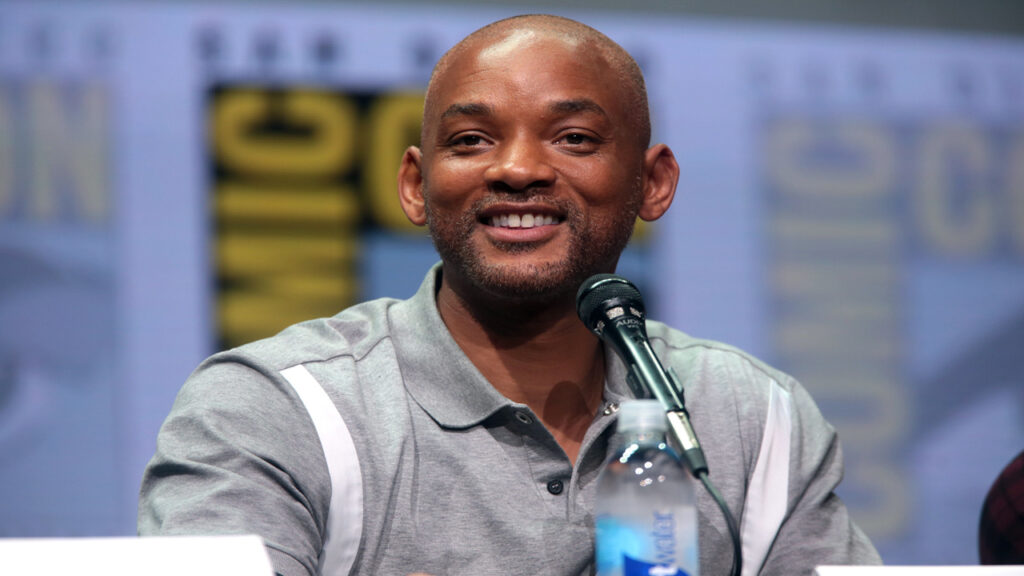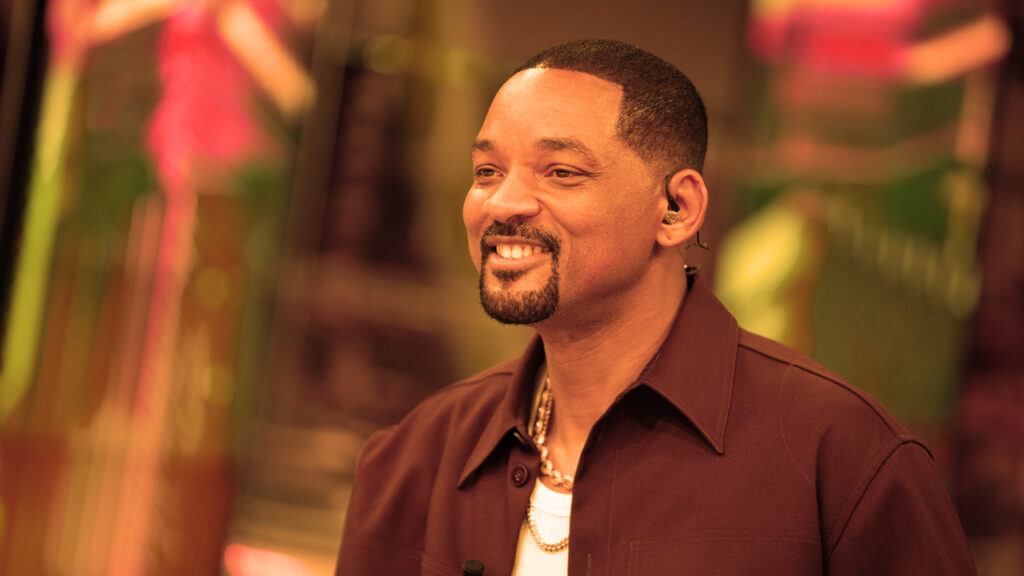Will Smith is a name synonymous with global stardom. From his beginnings as a rapper to becoming one of Hollywood’s most bankable stars, Smith’s journey is a story of relentless ambition and self-belief. Yet, what’s surprising is his candid admission: “I’ve always considered myself average talent.”
This statement is a powerful testament to the mindset that drove his success. In this blog, we’ll explore how Smith’s perception of himself as “average” became a cornerstone of his incredible career, diving into his life, philosophies, and lessons for anyone seeking to channel their ambition effectively.
The Foundation: Humble Beginnings

Born and raised in West Philadelphia, Willard Carroll Smith Jr. grew up in a working-class family. His early years were shaped by discipline and resilience, values instilled by his father, a refrigeration engineer, and his mother, a school administrator.
Smith first gained fame as the Fresh Prince, a rapper who, alongside DJ Jazzy Jeff, produced hits like “Parents Just Don’t Understand” and “Summertime”. Despite their Grammy wins, Smith’s early music career faced setbacks, including financial troubles that almost derailed his trajectory.
Rather than succumbing to adversity, Smith’s belief in hard work and his willingness to out-hustle his peers propelled him forward. “I’ve always seen myself as someone who needed to outwork everyone else because I wasn’t naturally gifted,” Smith has said in interviews.
Turning Perceived Limitations Into Strengths

A Mindset of Relentless Effort
Smith’s self-assessment as possessing “average talent” was never a barrier; rather, it became the catalyst for his extraordinary work ethic and relentless drive. He once articulated this mindset with a now-famous declaration:
“The only thing I see that is distinctly different about me is I’m not afraid to die on a treadmill. If we get on the treadmill together, there’s two things: you’re getting off first, or I’m going to die.”
This powerful metaphor highlights his unwavering dedication and belief in the supremacy of effort over natural ability. For Smith, success was rooted not in raw talent but in an unyielding commitment to discipline, preparation, and perseverance. He approached every challenge—be it mastering a script, embodying a character, or undergoing a demanding physical transformation—with unmatched determination and focus.
Smith’s philosophy aligns with the broader psychological principle known as the “growth mindset,” which emphasizes that abilities can be developed through effort and practice. His career serves as a testament to the notion that consistency, grit, and a refusal to give up can often outmatch sheer talent. By prioritizing hard work and preparation, Smith not only achieved his goals but also redefined what it means to push boundaries in pursuit of excellence.
Embracing Failures
Smith’s illustrious career has not been without its challenges. High-profile missteps, such as the critical and commercial disappointments of Wild Wild West and After Earth, tested his resilience and resolve. However, rather than allowing these setbacks to define him, Smith embraced them as opportunities for growth and transformation. His mantra, “Fail early, fail often, fail forward,” encapsulates his philosophy of using failure as a stepping stone toward success.
This mindset reflects a broader principle: that risk-taking and learning from mistakes are vital for personal and professional development. Smith has consistently demonstrated an ability to extract valuable lessons from his setbacks, evolving both as an artist and an individual. In interviews, he has often spoken about reframing failure as an integral part of progress, emphasizing that each misstep brings insights that pave the way for future achievements.
For example, following the backlash from After Earth, Smith reevaluated his approach to filmmaking and his role choices, focusing on projects that resonated more deeply with audiences and aligned with his personal values. This recalibration ultimately contributed to his comeback in critically acclaimed films like Concussion and King Richard, the latter earning him an Academy Award for Best Actor.
Smith’s willingness to confront failure head-on and adapt accordingly serves as an inspiring example of resilience and growth. It underscores the importance of perseverance, self-reflection, and the courage to continually take risks in the pursuit of greatness.
Career Milestones: Outworking “Average”

Transition to Television: The Fresh Prince of Bel-Air
Smith’s big break came with The Fresh Prince of Bel-Air, a show that blended comedy with heartfelt drama. While Smith initially struggled with acting, he compensated with determination, often memorizing not only his lines but also those of his co-stars.
Breakthrough in Hollywood
Smith’s Hollywood career soared with blockbusters like:
- Independence Day (1996)
- Men in Black (1997)
- The Pursuit of Happyness (2006)
These films showcased his versatility and ability to connect with audiences across genres. His preparation for roles—from mastering alien-fighting action to portraying a struggling father—underscored his commitment to excellence.
Lessons from Will Smith’s Philosophy

Hard Work Trumps Talent
Smith’s success emphasizes that talent alone isn’t enough. Discipline, consistency, and a strong work ethic are essential.
Key takeaway: Don’t wait for opportunities; create them by putting in the work.
Focus on Self-Improvement
Smith’s commitment to personal growth has been a constant. From fitness challenges to philosophical exploration, he continues to push himself:
“The only thing that I see that is better than being the best is being better than yourself yesterday.”
Impact beyond Entertainment
Philanthropy and Motivation
Smith’s influence extends beyond the screen. He and his wife, Jada Pinkett Smith, have supported causes ranging from education to environmental sustainability. Through speeches and interviews, Smith inspires millions with his messages of resilience and positivity.

FAQs
Why does Will Smith consider himself average talent?
Smith believes his success is more a result of hard work than innate ability. He emphasizes the importance of effort and discipline over natural gifts.
What is Will Smith’s work ethic?
Smith is known for his relentless dedication, famously saying he’s willing to “die on a treadmill” to achieve his goals.
What lessons can we learn from Will Smith?
Smith’s story teaches us to embrace effort, learn from failure, and focus on continuous self-improvement.
Has Will Smith faced failures?
Yes, Smith’s career includes notable failures, such as Wild Wild West. However, he uses these experiences as learning opportunities.

Conclusion
Will Smith’s admission of “average talent” is not a confession of mediocrity—it’s a profound testament to his extraordinary work ethic and unyielding ambition. By recognizing his limitations, Smith fueled a relentless drive to outwork everyone around him, turning effort into his greatest asset. His philosophy revolves around preparation, perseverance, and embracing failure as a stepping stone to growth. This mindset has propelled him from humble beginnings to global superstardom, proving that talent alone doesn’t define success—dedication does. Smith’s story is a powerful reminder that perceived limitations can become the foundation of greatness when met with hard work and unshakable determination.

